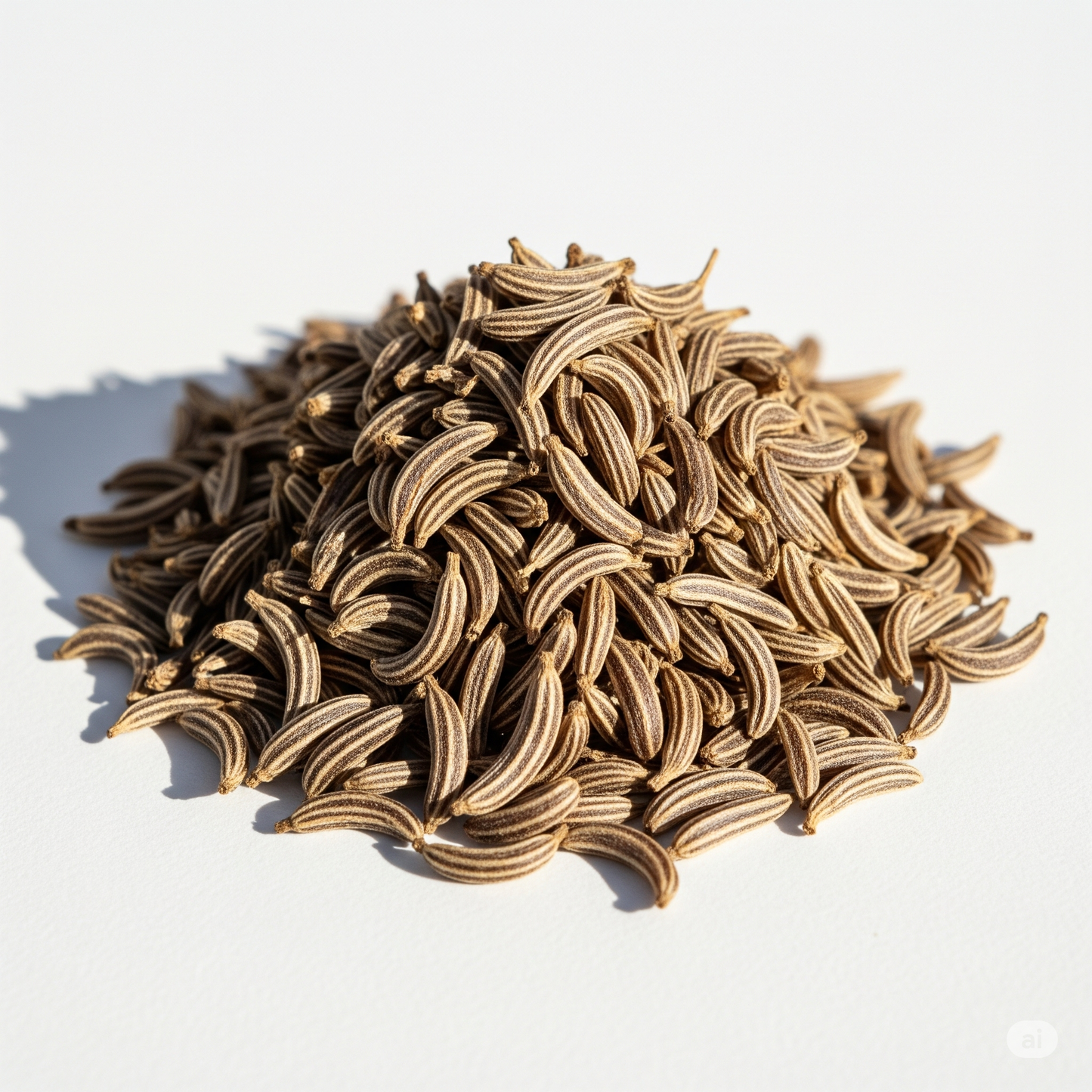Wadi
Caraway seeds
Caraway seeds
Couldn't load pickup availability
Primary Uses:
1. Culinary uses:
- As a spice in breads, cakes, and pastries
- In sauerkraut and other pickled vegetables
- In meat dishes such as sausages and stews
- In soups and broths
- In cheese and dairy products
2. Flavoring uses:
- In alcoholic beverages such as aquavit and schnapps
- In teas and herbal infusions
- In flavoring oils and extracts
- In marinades and dressings
3. Aroma uses:
- In perfumes and fragrances
- In soaps and cosmetics
- In air fresheners and potpourri
- In aromatherapy and massage oils
Other Uses:
1. Culinary uses - Caraway seeds are commonly used as a spice in various cuisines, especially in European and Middle Eastern dishes. They are used to flavor bread, cheese, sausages, soups, stews, and pickles.
2. Medicinal uses - Caraway seeds have been traditionally used for their medicinal properties. They are believed to aid digestion, relieve flatulence, and reduce bloating. They are also used to treat respiratory problems, menstrual cramps, and insomnia.
3. Folklore uses - Caraway seeds have been used in folklore and superstitions. They were believed to have magical powers and were used to ward off evil spirits, protect against theft, and promote fidelity in marriage.
4. Ornamental uses - Caraway plants are sometimes grown for their ornamental value. They have delicate white flowers and feathery leaves that add texture and interest to gardens.
5. Insect repellent - Caraway seeds are believed to repel insects, especially moths. They are sometimes used in sachets or potpourri to keep clothes and linens fresh and insect-free.
6. Dyeing agent - Caraway seeds can be used as a natural dyeing agent. They produce a yellowish-brown color that is used to dye fabrics and yarns.
7. Religious uses - Caraway seeds have been used in religious ceremonies and rituals. They were used by ancient Egyptians in their mummification process and were also used in Christian and Jewish traditions as a symbol of love and fidelity.
Caution:
1. Can cause allergic reactions in some individuals
2. May interact with certain medications, such as blood thinners
3. Can cause digestive issues, such as bloating and gas, in some people
4. May have a bitter taste if not properly prepared or stored
5. Can be difficult to find in some grocery stores or markets.
Share


